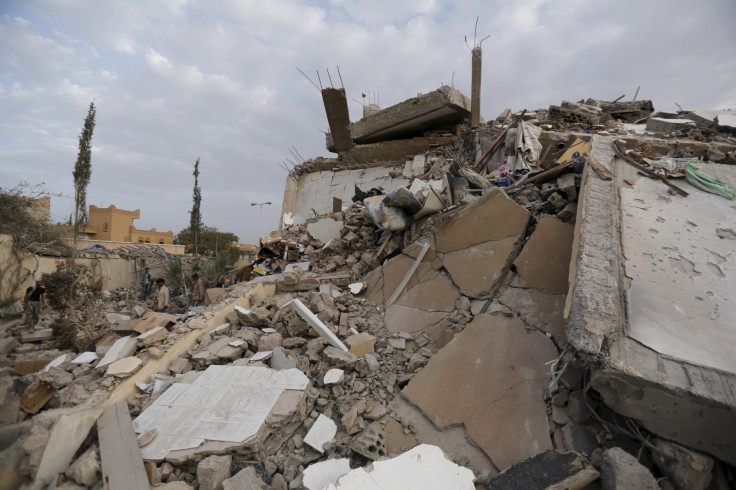Yemen crisis: Ramadan ceasefire raises questions for war-weary Yemenis

The UN secretary-general Ban Ki-moon announced today (10 July) that an unconditional humanitarian pause will start in Yemen at one minute before midnight tonight and shall remain until the end of Ramadan, which will either end on July 17 or 18, depending on the sighting of the moon.
This means that the ceasefire ends with Eid, the day celebrated by Muslims to mark the end of the holy month of Ramadan. The celebration is observed on different days in different countries depending when the moon is sighted. So it can be after either 29 days of Ramadan or 30.
This creates immediate issues with the humanitarian pause being tied to the Ramadan lunar calendar: what if Saudi Arabia decides Ramadan ends on the 29th day of Ramadan while Yemen extends to the 30th?
It also means war will resume with the first day of Eid, which is very frustrating and disenchanting to many when Eid is the most joyous day of the year for Muslims. As insane as it sounds, we will most probably mark this Eid with air strikes and bombs where otherwise we normally celebrated with fireworks.
One week will not be enough to bring sufficient aid into the country and distribute to the 80% of the population who are now in dire need of humanitarian assistance
That technicality aside, the ceasefire has been mildly and positively received by the general public here in Yemen. People have been waiting for and anticipating an 'imminent' pause since even before Ramadan and had high hopes that pause would commence coinciding with the start of the holy month and would end after the week of Eid (a five-weeks pause), neither of which happened.
After three and a half months of war in Yemen, many are simply too exhausted and are of the attitude that even if it is too little too late in Ramadan, a pause is a welcome move nevertheless. People who have been enduring the most of this war and are worn out now will take whatever they can get at this point.
The UN secretary-general additionally assured in his official statement on pause that the Houthis, the General People's Congress (ex President Saleh's party) and all other parties will be fully respecting the pause and that there will be no violations from any combatants under their control.
But although people are almost sure that the Saudi-led coalition will respect the pause and will not violate the ceasefire, they are sceptical that the other parties on the ground will. There are multiple raging battlefronts across the country where the fighting is intense and the warring parties are entrenched within a few hundred meters of each other.
Even if it didn't intentionally sabotage where it could easily blame the other side, already treading on thin ice and trigger happy, a single shot or misfire could very easily escalate to battles resuming and ending ceasefire.
The UN statement also stressed that it is imperative and urgent that humanitarian aid can reach all vulnerable people of Yemen unimpeded and through an unconditional humanitarian pause. People are however unsure and not clear on what "unconditional' means and if the pause will also carry a temporary lift of commercial blockade or restrictions on sea and airports.
The UN statement highlighting the importance of a full and unhindered access by "humanitarian agencies" to all parts of the country, including through sea and airports, is further fuelling suspicions and speculations that such access will only be provided to humanitarian agencies and not the public.
With the commercial blockade still enforced, it is highly doubtful that the humanitarian agencies will be able to meet the local demand for drugs, food, and fuel. One week will not be enough to bring sufficient aid into the country and distribute to the 80% of the population who are now in dire need of humanitarian assistance.
There is high scepticism with the pause taking effect or if it will change much on the ground when a previous one back in May did not. The bigger question of whether the KSA-led coalition has an end goal or a general strategy remains unanswered.
The coalition's operations have been increasingly and purely military focused on obliterating the capacity of Houthis and Saleh forces as an end unto itself and without an end goal to the overall war. So much so that after seemingly running out of viable military targets, the coalition is now individually going after Houthi and pro-Saleh leaders.
The initial coalition's rhetoric aim to 'restore the legitimate government of Yemen' is now exceedingly blurred and lost with support for the government currently in exile in Saudi Arabia rapidly evaporating.
With the Houthis and Saleh loyalists not showing any signs of backing down or retreating and the Saudi-led coalition along with the government in exile not willing to compromise and intent on eliminating, many fear that UN putting Yemen on a list of the world's most severe humanitarian emergencies will not be the last of our woes.
© Copyright IBTimes 2025. All rights reserved.





















